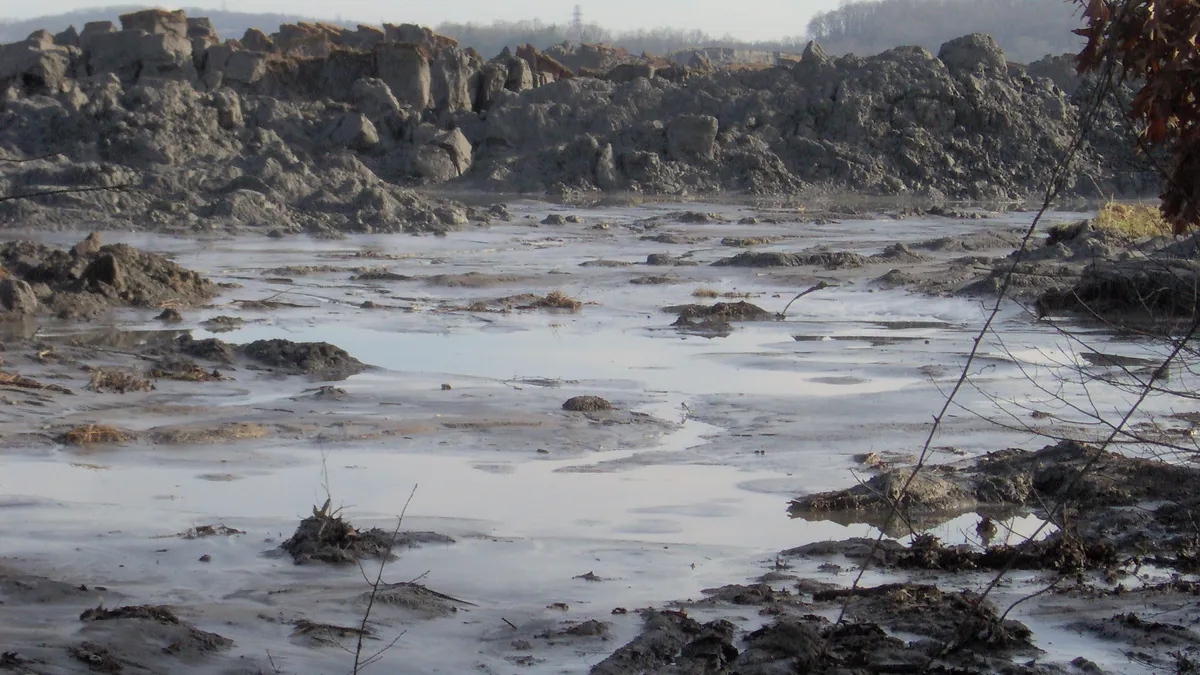Dive Brief:
-
Georgia Power is "completely excavating" and closing two coal ash ponds at its Branch and Bowen coal plants, the utility announced Thursday, part of its larger plan to close 29 such facilities across the state.
-
The announcement brings the number of Georgia Power ponds slated for excavation to 19. The remaining 10 will be closed in place under "advanced engineering methods and closure technologies."
- Georgia applied to operate its own state coal ash permitting program earlier this year, according to the Environmental Protection Agency.
Dive Insight:
Georgia Power says it is "on track to cease operations of all its ash ponds" as well as construct dry ash facilities by 2019.
Georgia state is the second to submit a coal ash management plan to the EPA under the Obama administration's Coal Combustion Residuals (CCR) rule, finalized in 2015. Oklahoma is the only state to have been approved for independent operation thus far.
Georgia's proposed coal ash program is "in many cases more stringent than the federal rules and is ahead of other companies throughout the country," a Georgia Power spokesperson told Utility Dive, but it remains unclear if states will ultimately comply with those standards.
The Trump administration proposed a new, less-stringent coal ash rule this year, but the D.C. Circuit Court ruled this month ruled that the original, Obama-era law did not do enough to protect the environment.
As legal arguments unfold, water contamination levels near coal ash ponds in Georgia are above federally safe levels, according to Ashtracker, which measures pollution concentrations near disposal facilities.
Last year, the Sierra Club served a notice of intent to sue Georgia Power over its excavation plan for its coal ash ponds, accusing the utility of not having the updated permits needed to drain the ponds and voicing concern that drainage would leak into rivers and drinking water. Georgia Power maintained it was going "above and beyond" state and federal requirements.
The state's Environmental Protection Division approved the utility's updated plan for dewatering its Bowen plant in December 2017 and its Branch plant in September.
Georgia Power joins other utilities, including Tennessee Valley Authority (TVA), in a shift toward dry storage.
TVA has been moving towards dry storage since its 2008 spill, which released over 1 billion gallons of coal ash from a broken ash pond and released toxins into the surrounding area. The spill in part led to the Obama-administration's Coal Combustion Residual rules, which included groundwater monitoring requirements. Reporting stemming from those regulations revealed groundwater contamination at sites across the country in March.
Both the Bowen and Branch facilities will be completely drained of ash and moved to a new dry facility where the ash is stored at a low moisture content in a lined landfill to prevent leakage. The utility hopes to retire six additional ash ponds by the end of this year.
Correction: An earlier version of this story incorrectly stated the Sierra Club sued Georgia Power. The organization served a notice of intent to sue the utility.















